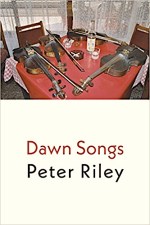Ten poets selected by the poetry editor and published in 2020.
The following is a list, with links, of the work of ten poets published by The Fortnightly Review over the summer. It augments my summer 2020 coverage of poetry publications. They differ greatly from each other, but if my intention has succeeded, they all allow the possibility of what Blake would have called “multiple vision”, however casually or marginally. That often translates as some awareness of or sensitivity to unpredicated reaches of language, and the presence of musical features which refer to the ancestry both of poetry and of perception. It may also translate into politics, with cautions about the dangers of homiletic afflatus and “revolutionary idiocy”. I think that this preference relates only superficially to categories of experimental, traditional, lyrical, narrative, realist or fictive writing, and is a quite well established matter of principal in some quarters, but not of much interest to the priests of the Big Prize / Top Poetry rituals, most of whose criteria are, I find, preconditional and in many cases programmatically reductive. I’ve listed these recent contributions here so that readers can, if they wish, follow them up in relation to my thoughts here, or not. — PR
 Lydia Unsworth, Three prose poems. One of the best prose-poem textures I’ve seen, allowing strong narrative impulsion to drive the poetical dance into unsolved allegory.
Lydia Unsworth, Three prose poems. One of the best prose-poem textures I’ve seen, allowing strong narrative impulsion to drive the poetical dance into unsolved allegory.
.
 Simon Perril, Poems from “The Slip”. Latest section of a long sequence founded on a nominally (but not effectively) anti-lyrical position in reference to ancient Greek satire and pathos.
Simon Perril, Poems from “The Slip”. Latest section of a long sequence founded on a nominally (but not effectively) anti-lyrical position in reference to ancient Greek satire and pathos.
.
 Sandra Kolankiewicz, Two poems. Straight declarations of ecological concern in which the language is permitted to spill over the edges of the rational discourse.
Sandra Kolankiewicz, Two poems. Straight declarations of ecological concern in which the language is permitted to spill over the edges of the rational discourse.
.
Carrie Etter, Six poems from ‘The Shooting Gallery”. Short, clear prose poems contemplating the latest batch of American school killings by focussing on neutral images of the contexts and experiences.
.
 Jesse Glass, Pain. Quite bouncy long poem on exactly the given subject, transgressing studious relevance in favour of imaginative leaps.
Jesse Glass, Pain. Quite bouncy long poem on exactly the given subject, transgressing studious relevance in favour of imaginative leaps.
.
 Claire Crowther, Three poems — thoughtful, modern, precise, ironical…
Claire Crowther, Three poems — thoughtful, modern, precise, ironical…
.
Luke Emmett, “So, dreams” and three more poems. Venturing out towards a no-man’s land of avant-garde secrecy, he here holds back enough to retain traces of a public scenario, crumbling at the edges.
.
 Steve Xerri, “EP: from the life” and two more poems. A thoughtful sequence addressed to Pound’s ghost.
Steve Xerri, “EP: from the life” and two more poems. A thoughtful sequence addressed to Pound’s ghost.
.
 Tom Lowenstein, “Some delicate, if minor, interconnections”. Serious to flippant musings and bitings of the armchaired poet with unleashed brain.
Tom Lowenstein, “Some delicate, if minor, interconnections”. Serious to flippant musings and bitings of the armchaired poet with unleashed brain.
And finally, Nigel Wheale’s essay-review of Crimsoning the Eagle’s Claw: The Viking Poems of Rognvaldr Kali Kolsson Earl of Orkney, translated by Ian Crockatt.
♦

 Peter Riley, the poetry editor of The Fortnightly Review‘s New Series, is a former editor of Collection, and the author of fifteen books of poetry (including The Glacial Stairway [Carcanet, 2011]) – and some of prose. He lives in Yorkshire and is the recipient of a 2012 Cholmondeley Award for poetry.
Peter Riley, the poetry editor of The Fortnightly Review‘s New Series, is a former editor of Collection, and the author of fifteen books of poetry (including The Glacial Stairway [Carcanet, 2011]) – and some of prose. He lives in Yorkshire and is the recipient of a 2012 Cholmondeley Award for poetry.
Peter Riley’s Collected Poems, containing work from 1962 to 2017, was published in two volumes by Shearsman in 2018, followed by Truth, Justice, and the Companionship of Owls from Longbarrow Press in 2019. An earlier book, Due North, was shortlisted for the Forward Prize in 2015. A collection of his ‘Poetry Notes’ columns has been collected in The Fortnightly Reviews: Poetry Notes 2012-2014, and published in 2015 by Odd Volumes, our imprint. An archive of his Fortnightly columns is here.






















Post a Comment